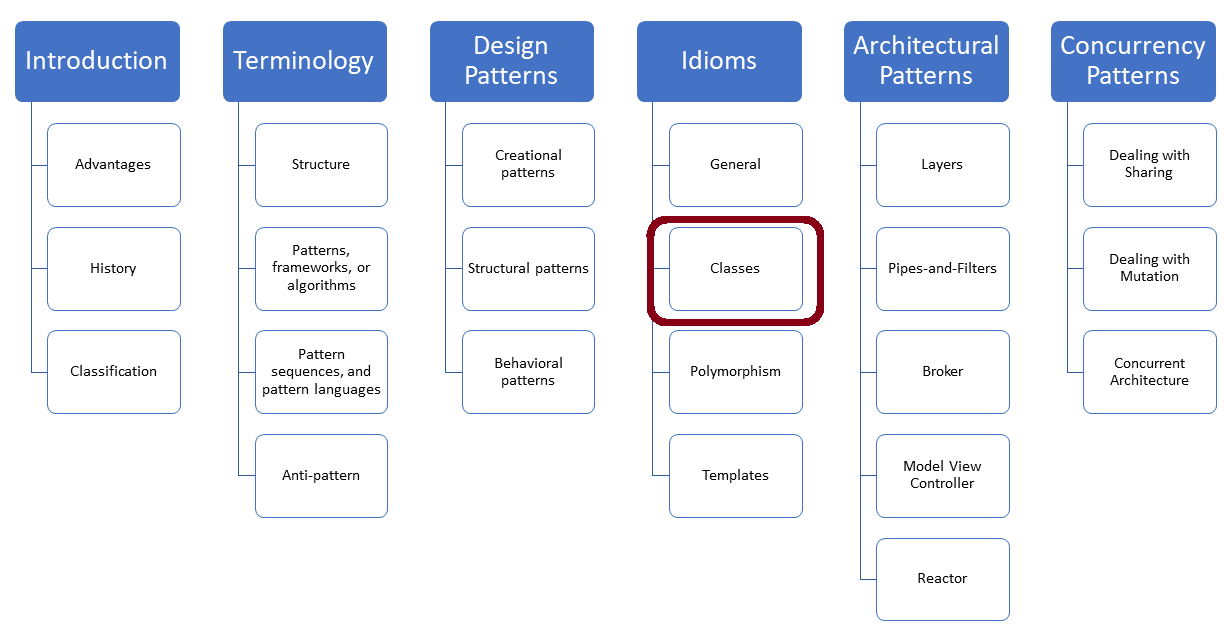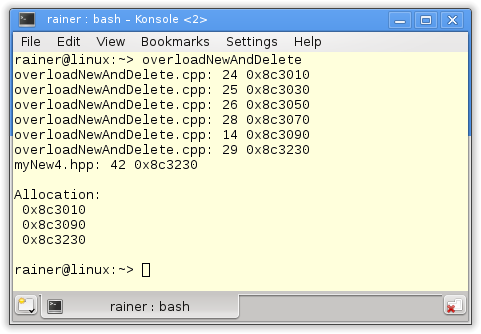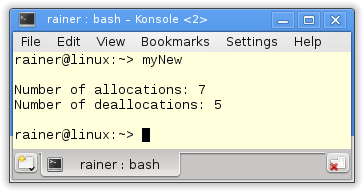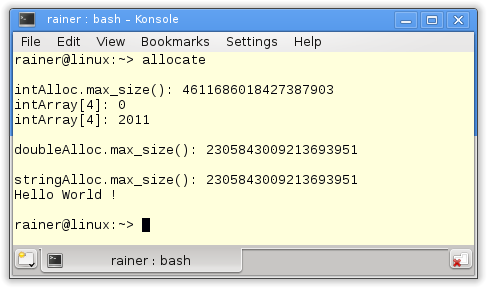C++ Core Guidelines: Rules about Don’ts
This post is about don’ts. Here are this post’s two most important rules: Don’t use std::move thoughtless and don’t slice. Let’s start.

Here are the don’ts for today.
- ES.56: Write
std::move()only when you need to explicitly move an object to another scope - ES.60: Avoid
newanddeleteoutside resource management functions - ES.61: Delete arrays using
delete[]and non-arrays usingdelete - ES.63: Don’t slice
The first rule is a disguised don’t.
ES.56: Write std::move() only when you need to explicitly move an object to another scope
Most of the time, there is no need to call std::move explicitly.The compiler automatically applies to move semantics if the source of the operation is an rvalue. An rvalue is an object with no identity. An rvalue typically has no name, and you can not get its address. The remaining objects are lvalues.
Applying std::move to a lvalue gives, most of the time, an empty object. The lvalue is afterward in a so-called moved-from state. This means that it is in a valid but no nearer specified state. Sound strange? Right! You just have keep this rule in mind: After you move from a lvalue such as std::move(source) you can not make any assumption about source. You have to set it to a new value.
Wait for a second. The rule says you should only use std::move to move an object to another scope. The classical use cases are objects which can not be copied but moved. For example, you want to move a std::promise into another thread.
 Modernes C++ Mentoring
Modernes C++ Mentoring
Do you want to stay informed: Subscribe.
// moveExplicit.cpp #include <future> #include <iostream> #include <thread> #include <utility> void product(std::promise<int>&& intPromise, int a, int b){ // (1) intPromise.set_value(a * b); } int main(){ int a= 20; int b= 10; // define the promises std::promise<int> prodPromise; // get the futures std::future<int> prodResult= prodPromise.get_future(); // calculate the result in a separat thread std::thread prodThread(product,std::move(prodPromise), a, b); // (2) // get the result std::cout << "20 * 10 = " << prodResult.get() << std::endl; // 200 prodThread.join(); }
The function product (1) gets the std::promise by rvalue reference. A promise cannot be copied but moved; therefore, std::move is necessary (2) to move the promise into the newly created thread.
Here is the big don’t! Don’t use std::move in a return statement.
vector<int> make_vector() { vector<int> result; // ... load result with data return std::move(result); // bad; just write "return result;" }
Trust your optimizer! If you return the object just by copying, the optimizer will do its job. This is a best practice until C++14; this is an obligatory rule since C++17 and is called guaranteed copy elision. Although this technique is called automatic copy elision, move operations are also optimized away with C++11.
RVO stands for Return Value Optimization and means that the compiler is allowed to remove unnecessary copy operations. What was until C++14 a possible optimization step becomes a in C++17 guarantee.
MyType func(){ return MyType{}; // (1) no copy with C++17 } MyType myType = func(); // (2) no copy with C++17
Two unnecessary copy operations can happen in these few lines—the first one in (1) and the second one in (2). With C++17, both copy operations are not allowed.
If the return value has a name, it’s called NRVO. This acronym stands for Named Return Value Optimization.
MyType func(){ MyType myVal; return myVal; // (1) one copy allowed } MyType myType = func(); // (2) no copy with C++17
The subtle difference is that the compiler can still copy the value myValue according to C++17 (1). But no copy will take place in (2).
ES.60: Avoid new and delete outside resource management functions
Okay, I can make it short. Don’t use new and delete the application code. This rule has a friendly reminder: “No naked new!”.
ES.61: Delete arrays using delete[] and non-arrays using delete
Here is the rationale for the last rule. Resource management in application code is error-prone.
void f(int n) { auto p = new X[n]; // n default constructed Xs // ... delete p; // error: just delete the object p, rather than delete the array p[] }
The guidelines state in the comment: “just delete the object p”. Let me put it more drastically. This is undefined behavior!
ES.63: Don’t slice
First of all. What is slicing? Slicing means: you want to copy an object during assignment or initialization, and you get only a part of the object.
Let’s start simple.
// slice.cpp struct Base { int base{1998}; } struct Derived : Base { int derived{2011}; } void needB(Base b){ // ... } int main(){ Derived d; Base b = d; // (1) Base b2(d); // (2) needB(d); // (3) }
The lines (1), (2), and (3) have all the same effect: the Derived part of d is removed. I assume that was not your intention.
In the announcement to this post, I said that slicing is one of the darkest parts of C++. Now it becomes dark.
// sliceVirtuality.cpp #include <iostream> #include <string> struct Base { virtual std::string getName() const { // (1) return "Base"; } }; struct Derived : Base { std::string getName() const override { // (2) return "Derived"; } }; int main(){ std::cout << std::endl; Base b; std::cout << "b.getName(): " << b.getName() << std::endl; // (3) Derived d; std::cout << "d.getName(): " << d.getName() << std::endl; // (4) Base b1 = d; std::cout << "b1.getName(): " << b1.getName() << std::endl; // (5) Base& b2 = d; std::cout << "b2.getName(): " << b2.getName() << std::endl; // (6) Base* b3 = new Derived; std::cout << "b3->getName(): " << b3->getName() << std::endl; // (7) std::cout << std::endl; }
I created a small hierarchy consisting of the Base and the Derived class. Each object of this class hierarchy should return its name. I made the method getName virtual (1) and overrode it in (2); therefore, I will have polymorphism. I can use a derived object via a reference (6) or a pointer to a base object (7). Under the hood, the object is of type Derived.
This will not hold if I just copy Derived d to Base b1 (5). In this case, slicing kicks in, and I have a Base object under the hood. In the case of copying, the declared or static type is used. The actual or dynamic type is used if you use an indirection such as a reference or a pointer.

To keep the rule in mind is quite simple: If your instances of a class should be polymorphic, it should declare or inherit at least one virtual method, and you should use its objects via an indirection such as a pointer or a reference.
Of course, there is a cure for slicing: provide a virtual clone function. Read the details here: C++ Core Guidelines: Rules for Copy and Move.
What’s next
This post was about don’ts. The next post will start with a do. Use curly braces for the initialization of data.
Thanks a lot to my Patreon Supporters: Matt Braun, Roman Postanciuc, Tobias Zindl, G Prvulovic, Reinhold Dröge, Abernitzke, Frank Grimm, Sakib, Broeserl, António Pina, Sergey Agafyin, Андрей Бурмистров, Jake, GS, Lawton Shoemake, Jozo Leko, John Breland, Venkat Nandam, Jose Francisco, Douglas Tinkham, Kuchlong Kuchlong, Robert Blanch, Truels Wissneth, Mario Luoni, Friedrich Huber, lennonli, Pramod Tikare Muralidhara, Peter Ware, Daniel Hufschläger, Alessandro Pezzato, Bob Perry, Satish Vangipuram, Andi Ireland, Richard Ohnemus, Michael Dunsky, Leo Goodstadt, John Wiederhirn, Yacob Cohen-Arazi, Florian Tischler, Robin Furness, Michael Young, Holger Detering, Bernd Mühlhaus, Stephen Kelley, Kyle Dean, Tusar Palauri, Juan Dent, George Liao, Daniel Ceperley, Jon T Hess, Stephen Totten, Wolfgang Fütterer, Matthias Grün, Phillip Diekmann, Ben Atakora, Ann Shatoff, Rob North, Bhavith C Achar, Marco Parri Empoli, Philipp Lenk, Charles-Jianye Chen, Keith Jeffery, Matt Godbolt, and Honey Sukesan.
Thanks, in particular, to Jon Hess, Lakshman, Christian Wittenhorst, Sherhy Pyton, Dendi Suhubdy, Sudhakar Belagurusamy, Richard Sargeant, Rusty Fleming, John Nebel, Mipko, Alicja Kaminska, Slavko Radman, and David Poole.
| My special thanks to Embarcadero |  |
| My special thanks to PVS-Studio |  |
| My special thanks to Tipi.build |  |
| My special thanks to Take Up Code |  |
| My special thanks to SHAVEDYAKS |  |
Modernes C++ GmbH
Modernes C++ Mentoring (English)
Rainer Grimm
Yalovastraße 20
72108 Rottenburg
Mail: schulung@ModernesCpp.de
Mentoring: www.ModernesCpp.org
Modernes C++ Mentoring,










Leave a Reply
Want to join the discussion?Feel free to contribute!